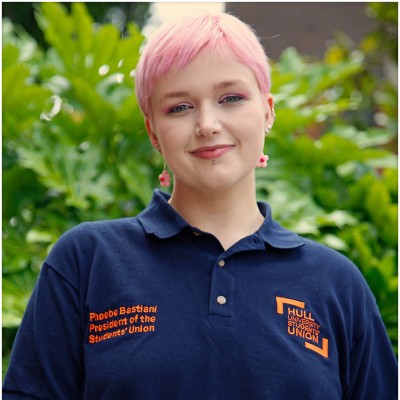Back in 2021, responses to a survey from first year students suggested that over a quarter may have an eating disorder.
Late last year, NHS research found that more than six in ten 17- to 23-year-olds have “possible problems with eating”, and the problem is worse in the upper half of that age bracket.
And in a survey of UK university students by the ED charity Beat, 32 per cent of students with an ED were diagnosed at university – however, 69 per cent of them reported difficulties accessing treatment.
The gaps between university mental health support and NHS services could not be more stark for students with eating disorders – and there’s a lot of them.
At Beat we’re working hard on NHS waiting times and calorie counts on menus in Wales and Scotland.
Eating disorders are serious mental illnesses, and as well as having a serious impact on the student experience, too many people lose their lives to them every year in the UK.
But what if I told you that some of these tragic deaths could have been avoided?
In 2017 a report outlined what needed to change to prevent more tragedies. Yet six years later people are still losing their lives.
Beat is fighting to make these changes happen, but we need your help.
Ignoring the alarms
In 2017 the Parliamentary and Health Service Ombudsman published its report “Ignoring the Alarms: How NHS eating disorder services are failing patients”.
It found that the tragic deaths of 19-year-old Averil Hart – a former student at UEA – and two more women could have been avoided.
After moving away for university and being discharged from an inpatient unit to an outpatient service, failures in her care plan, adequate assessment of the risks of discharge and relapse and medical monitoring, as well as delays in allocating care, led to Averil becoming severely unwell.
Averil was finally admitted to hospital, but even after being readmitted a series of mistakes and oversights were made, and 8 days after being admitted, she passed away. This was only 5 months after she was discharged from inpatient care.
The PHSO report observed that low levels of knowledge about eating disorders among professionals was one of several failings that led to the deaths of the three women.
Earlier this year the Health Service Journal identified at least 19 more people whose deaths sparked concerns from coroners about their care – all since the Ignoring the alarms report in 2017.
Again, limited understanding of eating disorders by GPs, doctors in acute hospitals, and other health professionals were highlighted by several coroners. And we know there‘s a lack of understanding within universities and their medical centres too.
What are we doing?
Less than a year later, research found that medical students spent an average of just 1.8 hours of their five years of training learning about eating disorders – and some medical schools didn’t cover eating disorders in their curriculum at all.
At Beat, the UK’s eating disorder charity, we began campaigning for every medical school in the UK to provider effective eating disorder training to their medical students – arguing that such complex and prevalent mental illnesses were “Worth More Than 2 Hours” of education across 5 years of studying medicine.
It is crucial that all doctors can identify eating disorders early, and keep their patients safe, while supporting referral for specialist treatment.
So we have been calling for all UK medical schools and foundation programmes to:
- Include understanding, identifying and treating eating disorders in their curriculum;
- Allow enough time for students to learn about eating disorders;
- Include questions about eating disorders in assessments .
We have collaborated with Health Education England and the Royal College of Psychiatrists to develop a free training package for medical schools, to make it as easy as possible to equip all medical students and junior doctors with the key knowledge and skills.
We’ve seen some great progress so far. 16 medical schools are now delivering effective eating disorders training to their students – and a further 10 in the process of implementing it.
But despite efforts from Beat, the GMC, the Royal College of Psychiatrists Faculty of Eating Disorders, and Health Education England, many medical schools are still not delivering effective eating disorders training to their medics – and sadly, we are still seeing the consequences of underprepared health professionals.
There are still 15 more medical schools we need to reach.
What can you do
We need SUs across the UK to back our calls and lobby their universities and medical schools to demand change.
You can find out the status of the medical school at your university (if you have one) on our website.
If the medical school at your university is listed as insufficient, receptive or unresponsive you can support our work by getting the campaign in front of the right people and helping us connect with them.
You can email heads of medical schools, vice chancellors and pro vice chancellors to explain why this campaign is important and urge them to meet with us. You can get this issue on the agenda in those key decision-making meetings. You can help us work with your local MP to lobby the universities and medical schools.
If the medical school at your university is listed as effective or developing, there is still a lot you can do to help support the campaign.
- Connecting with medical students and societies to find out how the training is going at your university.
- Running events that support the message that eating disorder training is vital.
- Even getting in touch with your local NHS Trusts to support the work they’re doing to educate foundation doctors.
If you want to find out more about this campaign and helping us make change at your university, get in touch.


















